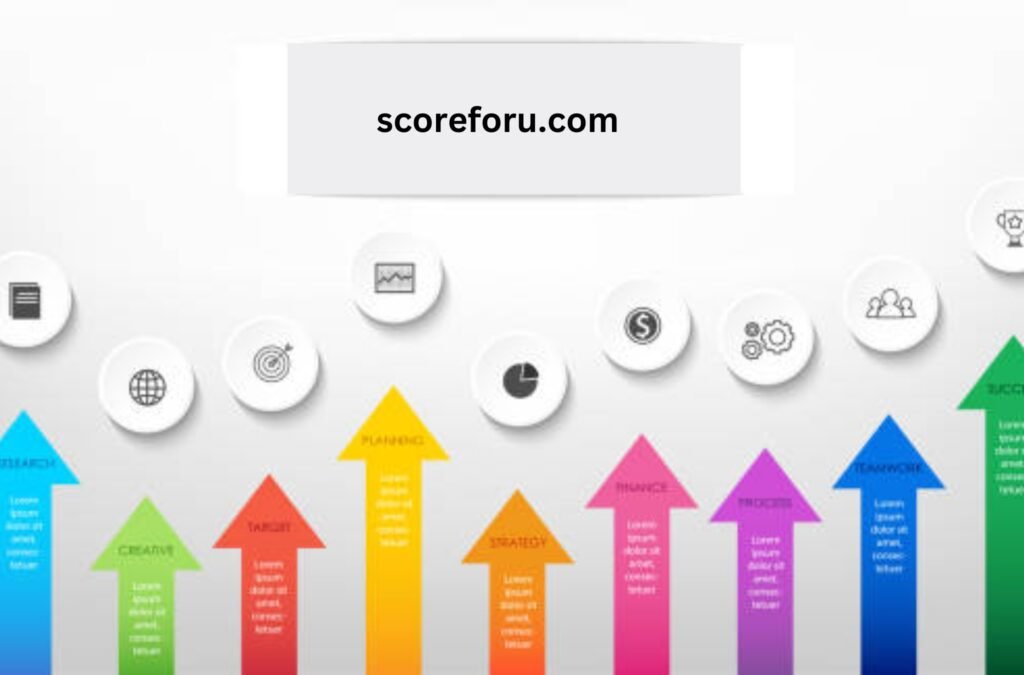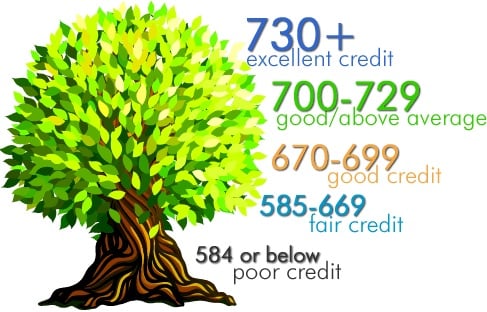To get your credit score up, pay your bills on time and keep your credit utilization low. A good credit score is essential for financial success and stability.
It can help you secure loans, get better interest rates, and qualify for credit cards with higher limits. However, if your credit score is not where you want it to be, there are steps you can take to improve it.
By implementing healthy financial habits, you can increase your credit score over time. We will explore some tried and tested methods that can help you get your credit score up. From paying bills on time to managing your credit utilization, a higher credit score is within reach with the right strategies. Stay tuned to discover how you can boost your creditworthiness and achieve your financial goals.

Understanding Credit Scores
Looking to boost your credit score? Here’s a guide to understanding credit scores and how to improve them.
What Is A Credit Score?
A credit score is a three-digit number that represents a person’s creditworthiness. It is a statistical estimate of how likely an individual is to repay their debts based on their past financial behavior.
Why Is A Credit Score Important?
A credit score plays a crucial role in financial decision-making processes used by lenders, landlords, and even potential employers. It is an essential factor that determines whether you qualify for a loan, mortgage, or credit card. A high credit score demonstrates your ability to manage debt responsibly, making you an attractive borrower.
On the other hand, a low credit score can limit your access to credit, resulting in higher interest rates or even loan denials. Understanding and actively working to improve your credit score is vital to ensure you have better financial opportunities in the future.

Factors That Affect Credit Scores
There are several factors that can impact credit scores and understanding them is crucial for improving your credit score. By managing your debt responsibly, making payments on time, and keeping your credit utilization low, you can work towards increasing your credit score.
Payment History
Your payment history plays a crucial role in determining your credit score. It represents your ability to make payments on time, making it one of the most important factors lenders consider when determining your creditworthiness. A positive payment history demonstrates responsible financial behavior and can significantly boost your credit score.
Credit Utilization
Credit utilization refers to the percentage of your available credit that you’re currently using. It is calculated by dividing your total credit card balances by your total credit limits. Lenders want to see a low credit utilization ratio, typically below 30%. Keeping your credit utilization low indicates that you’re not relying too heavily on credit, which can positively impact your credit score.
Length Of Credit History
The length of your credit history is another important factor that affects your credit score. Generally, the longer your credit history, the better. Lenders want to see that you have a track record of managing credit responsibly over time. If you’re just starting out, it may take some time to build a solid credit history. However, by opening accounts and maintaining good credit habits, you can steadily improve your credit score.
Types Of Credit Used
The types of credit you have also impact your credit score. Lenders like to see that you can effectively manage different types of credit, such as credit cards, loans, and mortgages. This demonstrates that you can handle a variety of credit responsibilities. Having a diverse mix of credit accounts can positively influence your credit score, as long as you make timely payments and manage them responsibly.
Strategies To Improve Credit Scores
When it comes to improving your credit score, there are several key strategies that can make a significant impact. By implementing these techniques, you can start to see positive changes in your creditworthiness over time. In this section, we will explore four effective strategies to help you get your credit score up and improve your financial standing.
the most important factors in determining your credit score is your payment history. By paying your bills on time, you show lenders that you are responsible and reliable. To ensure timely payments, set up automatic reminders or use payment apps that send alerts. By making your payments promptly, you can avoid late fees, penalties, and the potential negative impact on your credit score.
High credit card balances can negatively affect your credit utilization ratio, which is the percentage of your available credit that you are using. To improve your credit score, aim to keep your credit utilization below 30%. Start by paying down your credit card balances, focusing on the cards with the highest interest rates first. By reducing your credit card debt, you can demonstrate financial responsibility and improve your overall creditworthiness.
Building a positive credit history is essential for improving your credit score. If you are new to credit or have limited credit history, consider applying for a secured credit card or becoming an authorized user on someone else’s credit card. By using credit responsibly and making timely payments, you can establish a solid credit history over time. Remember, it’s important to keep your credit utilization low and avoid opening multiple new accounts all at once.
Having a diverse mix of credit accounts can positively impact your credit score. Lenders want to see that you can responsibly handle different types of credit, such as credit cards, loans, and mortgages. If you only have credit card accounts, consider adding a small personal loan or a car loan to diversify your credit mix. By diversifying your credit, you can demonstrate your ability to handle various types of debt responsibly.
When you apply for new credit, it results in a hard inquiry on your credit report, which can temporarily lower your credit score. To minimize the impact, limit the number of new credit applications you make. Only apply for credit when you truly need it and when you feel confident that you will be approved. By limiting new credit applications, you can help protect your credit score from unnecessary drops.
In conclusion, by employing these strategies, you can take proactive steps to improve your credit score. Paying bills on time, reducing credit card balances, building credit history, diversifying your credit mix, and limiting new credit applications are all effective ways to enhance your creditworthiness over time. Committing to these strategies and maintaining good financial habits will help you achieve a healthier credit score and open doors to better financial opportunities.

Credit: www.myknowledgebroker.com
FAQ For How To Get Credit Score Up
What Factors Affect Your Credit Score?
Several factors can affect your credit score, including payment history, credit utilization, length of credit history, new credit, and credit mix. It’s important to manage these factors responsibly to improve your credit score.
How Can I Improve My Credit Score Quickly?
To improve your credit score quickly, you can start by making all your payments on time, reducing your credit card balances, paying off any outstanding debts, and avoiding opening multiple new credit accounts at once checking your credit report for errors can also help.
How Long Does It Take To Increase Your Credit Score?
The time it takes to increase your credit score depends on various factors, such as your current credit situation and how well you manage your credit going forward. Typically, it may take several months or even years of responsible credit usage to see significant improvements in your score.
Conclusion
Boosting your credit score is essential for financial stability and future opportunities. By following the strategies discussed in this blog post, such as making timely payments, keeping credit utilization low, and monitoring your credit report, you can take control of your credit score.
Each step you take toward improving your credit score will contribute to your long-term financial success. Start implementing these tips today and watch your credit score soar!
